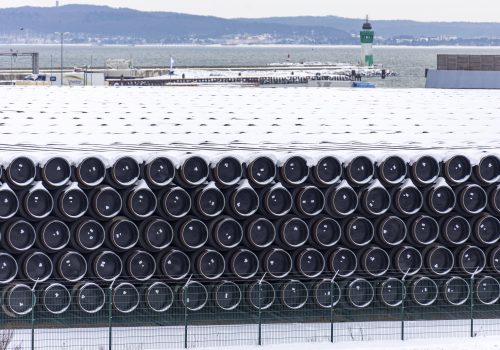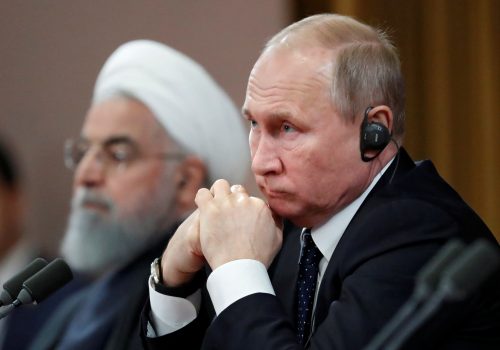Putin’s Mediterranean gambit: Endgame unclear
For more than 250 years, Russian leaders have sought to project power and influence in the Mediterranean region. Sometimes these efforts have met with a significant degree of success. At times, though, Russia has pulled back from the Mediterranean because of setbacks in the region, events in Europe, or convulsions inside Russia. These pullbacks, however, have never been permanent and have always been followed by renewed Russian efforts to gain influence in the region.
In a new Atlantic Council report, “Putin’s Mediterranean Gambit: Endgame Unclear,” Dr. Mark N. Katz, nonresident senior fellow with the Atlantic Council’s Middle East Programs and professor of government and politics at the George Mason University Schar School of Policy and Government, analyzes Russia’s determination to revive and even expand Russian influence in the Mediterranean.
In light of Putin’s considerable degree of success in the Mediterranean, this paper explores: 1) how, as well as how effectively, Putin has increased Russian influence in the Mediterranean on a country-by-country basis; 2) what broader objectives Putin appears to be pursuing through expanding Russian influence in the Mediterranean; 3) the factors that have helped and hindered Putin’s achievement of these objectives; and 4) why the United States should be concerned about growing Russian influence in the Mediterranean as well as how the Biden administration should respond to it.
The new Biden administration does not have the same unrealistic expectations for improved US-Russian relations that previous post-Cold War US presidents had when they first came to office. The Kremlin, for its part, anticipated a worse US-Russian relationship under Biden in all areas other than strategic arms control. An overall improved relationship would enable Washington and Moscow to regulate their rivalry in various regions—including the Mediterranean—and even work together on various common interests, such as battling jihadist forces and resolving conflicts. An overall poor or deteriorating US-Russian relationship, by contrast, will mean that Russian foreign and military policies in different regions—including the Mediterranean— will be aimed at weakening, if not eliminating, US influence.
Related content

Through our Rafik Hariri Center for the Middle East and Scowcroft Middle East Security Initiative, the Atlantic Council works with allies and partners in Europe and the wider Middle East to protect US interests, build peace and security, and unlock the human potential of the region.
Image: MOSCOW REGION, RUSSIA - MARCH 26, 2021: Russia's President Vladimir Putin holds a meeting of the Russian Security Councul via video link from the Novo-Ogaryovo residence. Alexei Druzhinin/Russian Presidential Press and Information Office/TASS.No use Russia.


